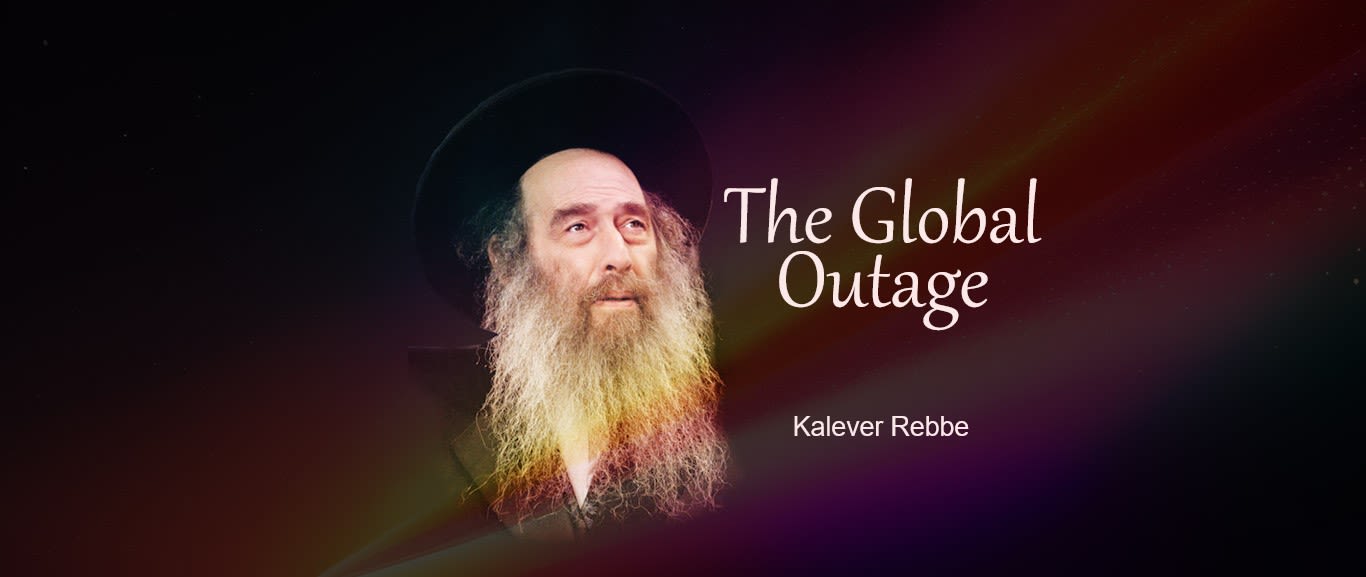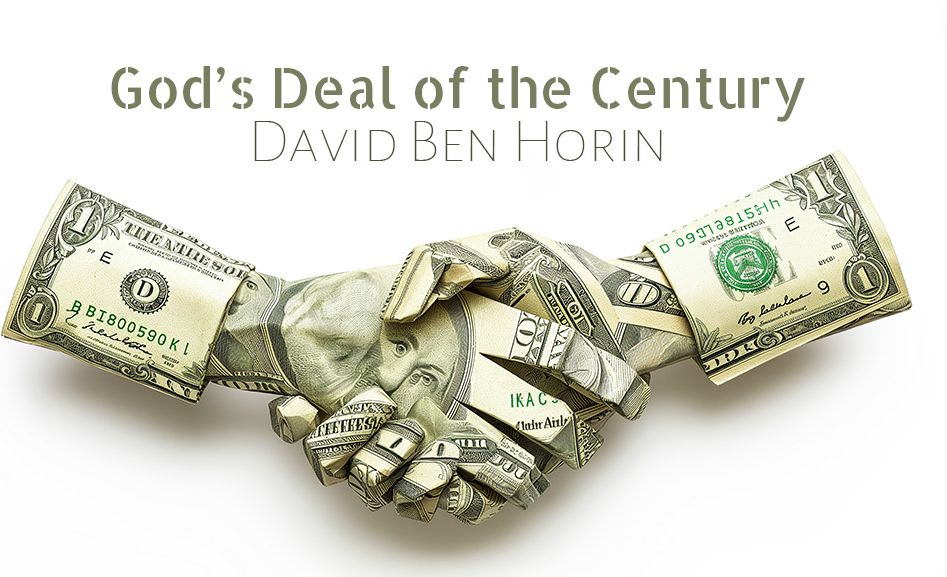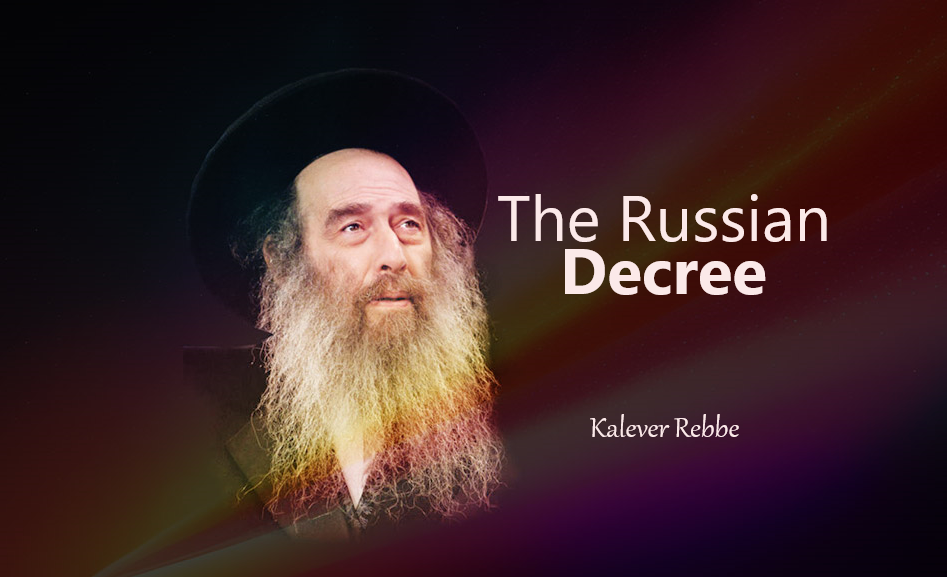
The Global Outage
Do we realize the critical role that we play in Hashem's master plan? Do we recognize our own individual self-worth? We must never think "Why would Hashem care if I pray, study Torah ,or do mitzvot? What difference do I make?"

“Your servants counted the soldiers who were in our charge, and not one man (Ish) was missing from us.” (Bamidbar 31:49)
The Missing Diamond
The Imrei Emes of Gur was davening Mussaf. By his side was his youngest son, the Pnei Menachem, who was four years old at the time. When they started saying Keser Yitnu Lecha – A crown is given to You (Kedushah), the Pnei Menachem lifted his eyes from the siddur (prayer book) to watch two boys who had begun quarreling.
After davening, the Imrei Emes told his son: “You should know, that when they bring Hashem the crown that is made today from the prayers of the Jewish people, it will be studded with diamonds. However, there will be one diamond missing. And, they will be asked, ‘why is there a diamond missing here?’ The angels will answer, ‘That diamond is missing because a young boy, Pinchas Menachem of Gur, didn’t say Keser properly because he was distracted.”
The Imrei Emes’ words penetrated his young son’s heart. He understood the preciousness of every yid’s avodat Hashem. From that moment on, the Pnei Menachem took great care of each diamond in Hashem’s crown.
A Single Bug
The king’s crown consists of many different diamonds. Each one is unique with its own qualities and characteristics. They are all different colors and shapes. Regardless of their differences, they are all valuable and precious. Together, they make a glorious and complete crown. If even one stone is missing, the entire crown is flawed and incomplete.
Similarly, every yid has a unique role to play in Hashem’s master plan. Every yid has different qualities, strengths and weaknesses. We are all different, and we are all precious. Each of us has an individualized purpose in Avodat Hashem.
When an orchestra is playing, there are dozens of instruments and musicians. Each one plays a different element of the song with its own sounds and characteristics. Someone with a trained ear can hear a flaw in the song if even one instrument is missing because each instrument is vital in helping create the synergy of that tune.
Recently, we saw the entire world suffer from a single bug in a software program [Editor’s Note: CrowdStrike update software]. It might have seemed like an insignificant line of computer code, but its impact was enormous.
In the non-Jewish world, it is easy to think that someone is insignificant among the massive population. For example, China’s population is over one billion people. It is easy to think that one person in that society is meaningless. Therefore, in these cultures, only the leaders and officials seem important. However, the yidden know that every Jew is significant and every Jew counts. Every Jew is like a unique diamond that cannot be replicated.
Unique in This World
In Pri Tzaddik (Parshat Shekalim), Reb Tzadok HaKohen quotes the Gemara in Sanhedrin (37a) that taught that every yid is obligated to say that the world was created for him. Reb Tzadok HaKohen writes that indeed the world was created for each individual, as the Gemara in Brachot (6b) taught that the entire world was created for one person. Each yid has a unique role in this world and, therefore, the “world was created for him” and needs him to fulfill his mission.
R’ Shlomo of Kalrin said, “Every yid is obligated to think that he is the only one in the world with his unique mission. He needs to know that there is no one else like him. If there would be someone else like him, then he would not need to be in this world.”
This is the reason for gilgulim, reincarnations. If a person does not complete his unique mission, he needs to return to this world to achieve his purpose. Only he can do this and find completion for himself and the world.
Every yid must recognize his importance. He is not insignificant, and he must never think, “There are millions of Jews in the world. Why would Hashem care if I daven, study Torah ,or do mitzvot. What difference do I make?”
Each yid must internalize the idea that each neshamah enters this world with a unique purpose that it must accomplish. Hashem also provides you with the tools, skills ,and capabilities of achieving that purpose.
Counting the Stars
Rashi (Parshat Shemot) taught that the Jews are compared to the stars, and the Pasuk says (Tehillim 147:4), “He counts the number of the stars; He calls them all by name.” A name is not just an identifier but is deeply connected to a person’s purpose. Hashem counts the stars by their names to demonstrate that each of the countless stars has a unique purpose.
Therefore, Hashem compares us to the stars. Like the stars, each of us has our own individual purpose. Hashem commands us to take a census to illustrate that each of us has an important and irreplaceable role to play in this world. We do not become lost in the crowd. Even if one of us is missing, the entire number is incomplete.
In our parsha, after Moshe counts the yidden, the Torah tells us, “Your servants counted the soldiers who were in our charge”… The census demonstrated that every yid is precious. This reality instilled a sense of holy pride in their Avodat Hashem, and they realized that they were all soldiers in Hashem’s army.
Therefore, “and not one man (Ish) was missing from us”… No one missed the knowledge that each one of them is an “Ish” which is a term that implies prestige (Bereishit Rabba 30:7).
When a yid realizes the critical role that he plays in Hashem’s master plan, when they can recognize their own self-worth, then they can be victorious in their war with the Yetzer Harah.
***
The Kalever Rebbe is the seventh Rebbe of the Kaalov Chasidic dynasty, begun by his ancestor who was born to his previously childless parents after receiving a blessing from the Baal Shem Tov zy”a, and later learned under the Maggid of Mezeritch zt”l. The Rebbe has been involved in outreach for more than 30 years and writes weekly emails on understanding current issues through the Torah. Sign up at www.kaalov.org.










Tell us what you think!
Thank you for your comment!
It will be published after approval by the Editor.